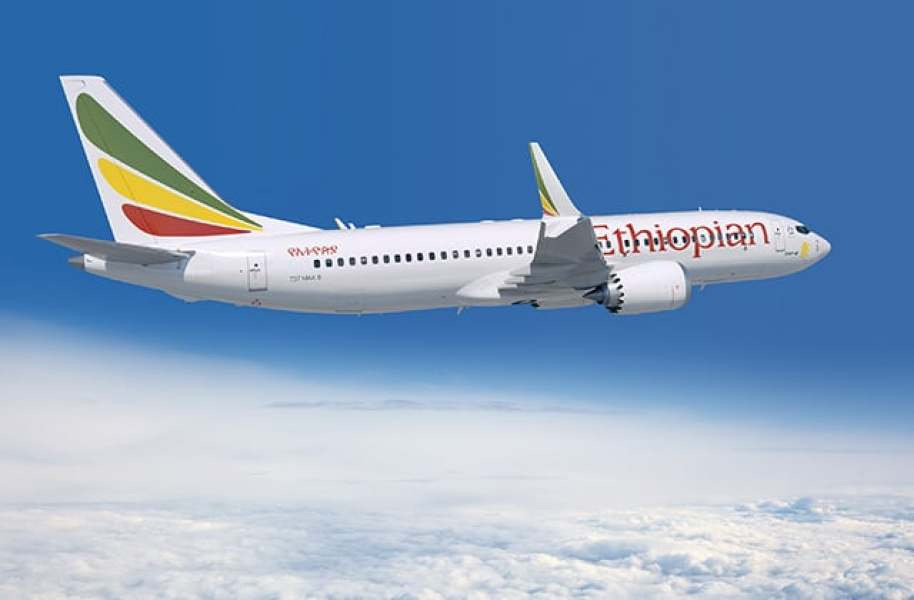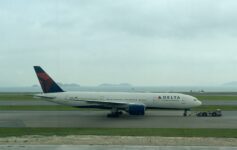Ethiopian Airlines is disputing statements from a Federal Aviation Administration official this week, alleging that the FAA is trying to divert blame from Boeing. Ethiopian’s CEO also suggested that his airline is in no rush to resume flying the 737 MAX and may never do so again.
Acting FAA administrator Daniel K. Elwell appeared before the U.S. House of Representatives Transportation Committee this week to address the pair of 737 MAX crashes. In his testimony, he suggested that the Ethiopian pilots did not adhere to the November 2018 FAA Directive on the aircraft’s Maneuvering Characteristics Augmentation System (MCAS), thus they share responsibility for the crash (more details here). The emergency directive was issued after the Lion Air crash. Blame was not placed squarely on the pilots. Rather, Elwell explained the problem like a chain reaction:
There are so many pieces to any accident. I’ve never looked at an accident where there weren’t three or four of five links in the chain, any one of which, if it hadn’t gone wrong, the plane would have survived.
Republicans on the committee focused on pilot error while Democrats focused on the lack of FAA oversight in certifying the MCAS system in the first place.
Meanwhile, Ethiopian Airlines was not happy about Elwell’s testimony. Fully defending its pilots, it argued that “none of the expected warnings appeared in the cockpit, which deprived the pilots of necessary and timely information on the critical phase.”
Ethiopian also blamed the simulator:
However, it’s very unfortunate that the B737 Max 8 simulator was not configured to simulate the MCAS operation by the aircraft manufacturer.
Botton line, Ethiopian argued that the testimony was meant to “divert public attention” from the faults of Boeing.
Any effort that is being made to divert public attention from the flight control system problem of the airplane is a futile exercise because it is not based on factually correct analysis.
Earlier this week, Ethiopian Airlines CEO Tewolde GebreMariam expressed doubt that his carrier would every fly the 737 MAX again.
If we fly them again, we will be the last airline to fly them again.
CONCLUSION
Whatever the primary or secondary causes, Elwell was correct that the crash was a horrific chain event, all of which combined to create the conditions necessary for the deadly crash. Boeing faces a growing credibility crisis over its engineering and handling of the issue, but Ethiopian doesn’t help itself by being so defensive.
> Read More:An Explosive New Theory On The Ethiopian 737 MAX Crash
image: Ethiopian Airlines





I don’t think they have to worry about being defensive. Boeing was wrong to hold off grounding of the plane given the glitches didn’t have a fix yet at that point, and it showed their ethics were zero next to sky high profits and defending the company image. Frankly, when the other party is flat wrong, you can be as defensive as you like, and that is the case here, in my opinion.
+1. The FAA isn’t helping matters either by blending CYA and victim shaming.
“Boeing faces a growing credibility crisis” because the internet mob of phone-wielding, tweeting self-appointed aviation experts is after Boeing and wants a scalp. No amount of facts, no understanding of aviation accidents, no understanding of aviation itself will make any difference. Expect more of this.
Ah. Yes. Much unlike all the Republicans and our president who are clearly aviation experts and whose insight and opinions on the matter are obviously correct and the only ones we should have or be allowed to be spoken or written about. Great contribution to the discussion, dick. /s
Let me preface that all of what I am saying is my opinion based on what I have read from cockpit transcripts, news articles, and several conversations with 10k+ hour 737 pilots. Ellwell is correct that the pilots did not follow the checklist for runaway trim (which included MCAS incidents), and explicitly ignored parts of them at times. This failure to follow the procedures is the proximate cause for the loss of control which led to the Ethiopian crash. The lack of training of the FO was probably a contributing factor, which Ethiopian is loathe to admit, thus the reaction by the airline. However, Boeing is also at fault for failing to anticipate the manner in which the MCAS system preformed and the existence of a bug in the software. Incidentally this is not the first issue with Boeing’s use of computer technology; when the 777 first came out there was a group of MIT CS professors contracted to look at the design who subsequently refused to fly the 777 because of the code and poor wiring (one notable thing being that they wired the IFE and some crucial flight systems into the same bus, which would open up the system to attack from the passenger.) And of course the FAA is at fault for failing to keep Boeing honest. However this is not the first time that a major manufacturer has screwed up code that led to crashes, Airbus has had many faults with their A320 series, which I would argue is more dangerous because the system has command authority over the pilots
Also, I have done some reading the same as you and not sure why you did not mention that from BB data it was actually the so-called ‘inexperienced’ FO who quickly diagnosed the problem. Also take off conditions at high altitude are different and was the key factor in the trim failing (same that makes their marathon runners unbeatable)
If American Airlines, Southwest Airlines etc had a problem with the cost of simulator and training, Ethiopian did not. In fact they were one of just a handful of airlines to have purchased one. They have an advanced training facility. The 737 Max simulator did not even address this potential MCAS issue even though it was a major change. Because of these reasons, I don’t see how the pilots can share the blame. I am an Engineer BTW from the so-called ‘3rd world’ but I have attended training in the US even alongside Boeing Engineers at a time and I have had to be correcting the calculations of the 1st world instructors. I don’t think you should compare hrs of flying time when you are not aware of their selection methods and training. There are places I visit where I would never put myself in a position to be flown by an American pilot no matter how many 1000s of hrs of ‘flying time’ he had.
Maria,
If your going to argue that the pilots should not share the blame would you mind telling me why staying in TOGA thrust and exceeding VMO was proper procedure?
Because they were fighting for control of their aircraft, at low altitude with a full load. What you have to ask yourself is, what placed them in that position. The MCAS was not a link in the chain, it was the trigger. There are two major failings at the end of Boeing: first, the linking of MCAS to just one AoA sensor and second, to not inform pilots about it. We all know why they did it and it has nothing to do with pilots not needing to know. To put it squarely on the pilots is a shameless diversionary tactic. These very same “3rd world operators” operate the 777, 787, 737-8 and A350 without any problems. Would the same be said if, God forbid, this had happened in the US?
Alastair,
Do you want different standards between the US and other countries for what a professional pilot should do? I suspect not if it’s your but in the seat.
Yes MCAS was the trigger. It was the first link in the chain. What if an engine failure had led to the crash would you have excused the pilots for mishandling it since it was the trigger?
Regardless of what the trigger was the fact (and it is a fact not an opinion) that had the crew handled that properly the airplane would not have crashed. Frankly their is simply no excuse for their being in TOGA as they exceeded VMO. There are of course reasons things evolved they way they did. But in the end the crew failed to do what they should have done.
Rather silly conclusion. Why should the Ethiopians not defend their position when Boeing is being protected through the shameless use of victim shaming and reducing Boeing’s failings to just “a link” in the chain of events. Why would they, or anyone else in their unfortunate position, let others dictate the narrative? The moral bankruptcy of the human race is there for all to see, putting protection of industry above human lives.
Well said….
I think Boeing should take full responsibility of the crash in order to regain their name back. In my opinion the MCAS system was the major triggers for the crash of the plan. Boeing are claiming the fault on Ethiopian airlines just to cover their names and this not accepted otherwise they will lose credibility throughout the world.
Ethiopian airlines takes the lead in blame, because the ceo and approved a strategic plan named vision 2025, they had strategic surveillance and technology survey globally,then found a fuel efficient and cost effective aviation tech,i.e Boeing 737 max 8, are they mistaken by boeing salespersons or marketers and Boeing ceo? Or taken an operations research academic perspectives over fuel cost minimization,which in the tech world won’t help anyone than damage passengers and biz goodwills? Negate or assert my statements. Since ethiopians are from the worlds’ best aviation academy,rectify …my knowledges of science,history,technology ,biz strategy,etc and Ethiopian governance ignorances over the years!wow!
Test
Hello, Matt…
Can’t ban me for long eh? Back to your campaign of defending Boeing? Slowly but surely shifting the burden of responsibilities, inter alia by casting a reasonable doubt such as “chain of event”?
Yeah, plane (commercial & military) is murica’s number 1 export. You gonna defend it till you die?
Back to trip report, please. Enough of this nonsense. Oh, and send your anonymous-friendly-know in person-experienced pilot back to school. Learn to make a better alias.